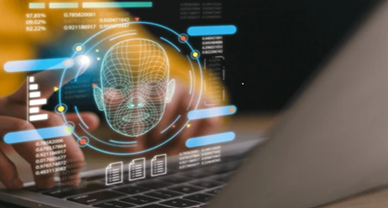Intellectual Property Rights As ‘Human Rights’ An Analysis
Intellectual property regimes request to balance the ethical and economic rights of creators and inventors with the broader interests and desires of the society. A major justification for patents and copyrights is that incentives and rewards to inventors result in advantages for the society. A person’s rights approach to holding takes what’s usually an implicit balance between the rights of inventors and creators and therefore the interests of the broader society within holding paradigms and makes it way more specific and exacting. The International Covenant on Economic, Social, and Cultural Rights (ICESCR) is the major international human rights instrument addressing these problems. Article 15 specifies that States Parties, that’s the countries that have legal or acceded to the current instrument, “recognize the proper of everyone” each “to fancy the advantages of scientific progress and its applications” and “to get pleasure from the protection of the ethical and material interests resulting from any scientific, literary or artistic creation of that he’s the author.[1]”
The right of everybody to share within the advantages of science has been enshrined in human rights instruments since the last century, originally in Article twenty-seven of the Universal Declaration of Human Rights[2] (UDHR) and afterward in Article fifteen of the International Covenant on Economic, Social and Cultural Rights (ICESCR). the proper was usually perceived as “obscure” associate degreed its interpretation wide neglected till the growth of the international belongings (IP) regime beneath the Agreement on Trade-Related Aspects of belongings (TRIPS) prompted an upsurge of legal scholarship and reports from international organizations seeking to deal with the “human rights contradiction.” The contradiction is claimed to arise from the juxtaposition in human rights instruments of individual rights over intellectual creations against the rights of everybody to “share in scientific advancement and its advantages.” this text attracts on archived documentation to indicate that the contradiction rests on an abstract obfuscation of human rights and informatics rights and is at odds each with the history on the aims of the drafters of the UDHR and also the philosophical and legal foundations of human rights and informatics rights.
The drafting history of Article 27[3] shows that delegations from South American socialist countries backed the French initiative to incorporate the rights of authors and inventors to the protection of their intellectual creations, whereas the U.S.A., UK, and former Anglo-Saxon colonies opposed the proposal to the terribly finish. Yet, behind the incomprehensible political alignments, there are necessary areas of convergence on the underlying philosophies and ethical rationales that junction rectifier to the adoption of Article twenty-seven of the UDHR.
To achieve these goals, the Covenant mandates that States Parties undertake a series of steps. These embody “those necessary for the conservation, the event and therefore the diffusion of science and culture.” A lot of specifically, States Parties “undertake to respect the freedom indispensable for a research project and artistic activity.”
To be in keeping with the norms within the ICESCR, a person’s rights approach differs in a number of regards from the standards set by holding law. In brief, it requires that the sort and level of protection afforded below any holding regime directly facilitate and promote scientific progress and its applications and do therefore in a manner that will loosely profit members of society on a private, as well as collective level. It establishes the next commonplace for evaluating patent applications, namely that the projected invention even be in keeping with the inherent dignity of the human person and with central human rights norms.
As a result of a person’s right may be a universal entitlement, its implementation ought to be measured significantly by the degree to that it benefits those that heretofore is the foremost underprivileged and vulnerable.
A right to the benefits of science and technology assumes that each people and community will have easy accessibility. In addition, a right to the advantages of science and technology cannot be achieved within the absence of careful government policies to work out priorities for investment in and therefore the development of science. The human rights principle that each citizen shall have the proper and chance to require half within the conduct of public affairs mandates a right of selection for members of society to be ready to discuss, assess, and have a role in decisive major scientific and technological developments. And eventually, a human rights approach entails a right of protection from doable harmful effects of scientific and technological development, once more on each individual and collective levels.
In the scientific domain, there is more and more privatization and reduction of scientific publications. Some researchers delay their publications and hide their information in order to defend their intellectual property. Thus, instead of being an incentive, intellectual property is a real brake on scientific progress. The multiplication of patents and other intellectual rights for a huge number of people will engender a situation in which everybody blocks the other. Therefore, as terrible consequences, intellectual property will reduce innovation and the offer of products.
In addition, intellectual property is also an obstacle to another human right: the right to health. As an example, most of the time, the titular’s of patents set their price at a level far higher than generics, with the result that a huge number of people do not have any access to some useful and appropriate medicine, in spite of the fact that those people represent the majority of the developing states.
Finally, it seems well-judged to conclude with the idea that the essence of human rights itself is hindered by intellectual property. While patents and trademarks are registered rights, copyrights are not subject to any examination. From this standpoint, such automaticity of protection does not lead to any exclusion on the grounds of morality. In addition, it has been noticed that officials responsible for the deliverance of patents generally neglect their duty to moral care. Most of them estimate neither necessary nor convenient to take into consideration moral and ethnic preoccupations in a patent exam, in spite of the fact that ethical preoccupations are the soul of Human Rights.
About the Author: Shilpi Sinha, Galgotias University, Intern at IP and Legal Filings, and can be reached at support@ipandlegalfilings.com.


